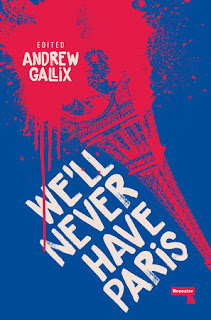I.
Good people always insist: It's quality rather than quantity that matters [1].
You'll be a much happier and more authentic human being, they say, if you forget about numbers, stop being acquisitive, and focus instead on things that have real value and substance, such as meaningful relationships.
It's a kind of moral minimalism in which the related mantra less is more is used to justify a small circle of friends, or the fact that one hasn't read many books.
Surprisingly, even D. H. Lawrence, who is usually quick to attack the base-born stupidity of proverbial wisdom, buys into this idea. But whilst he may be right to argue that it is better to read one good book six times rather than six bad books once [2], we feel obliged to point out the possibility of reading six good books six times.
That's a greater quantity of books - and many more readings - but surely that's better than simply reading one text over and over and insisting with monomaniacal intensity on its value. For that's precisely the error religiously-minded people fall into when they mistakenly decide that all they ever need read is a single holy text.
Ultimately, it's not a binary choice: you can have quality and quantity. In fact, as we'll explain below, you can't have the former without the latter ...
II.
Speaking as an evolutionary biologist, I can say that nature massively favours quantity over quality, which is why it can be so outrageously profligate. It's not necessarily the fittest who survive in this life, it's those who have the numbers to stake a claim on the future.
And by modelling populations over long timescales, a recent Oxford study showed that the most important determinant of evolutionary success was not good genes, but the widest number of genetically available mutations [3].
Brilliant individuals come and go like flowers; they simply don't have time to fix in the population or determine the evolutionary outcome of a race.
And speaking as an artist, I can also confirm the fact that the creation of great works rests upon a large body of work. That's why, for example, it was necessary for Picasso to paint some 60,000 pictures in order to produce a small number of works - probably fewer than a 100 - that are considered masterpieces.
This doesn't mean the vast bulk of the work is worthless or a waste of time; on the contrary, it was vital. For it was by producing works in such quantity that Picasso was able to learn, experiment, and evolve as an artist. Most importantly, it allowed him to make mistakes; for just as quality rests upon quantity, success rests upon repeated failure.
Notes
[1] The saying is often attributed to the Roman philosopher (and proto-Christian) Seneca; see his Moral Letters to Lucilius, Letter XLV: 'On sophistical argumentation', line 1. Click here to read online.
[2] See Lawrence's discussion of books and reading in relation to this question of quality (or real value) versus quantity in Apocalypse and the Writings on Revelation, ed. Mara Kalnins, (Cambridge University Press, 1980), p. 60.
[3] The study is published in the journal PLOS ONE and was funded by the Engineering and Physical Sciences Research Council. It's lead author is Dr Ard Louis, Reader in Theoretical Physics at Oxford University. For an interview with the latter discussing the key finding of the study - i.e., that life's evolution is all about arrival of the frequent, rather than survival of the fittest - click here.

